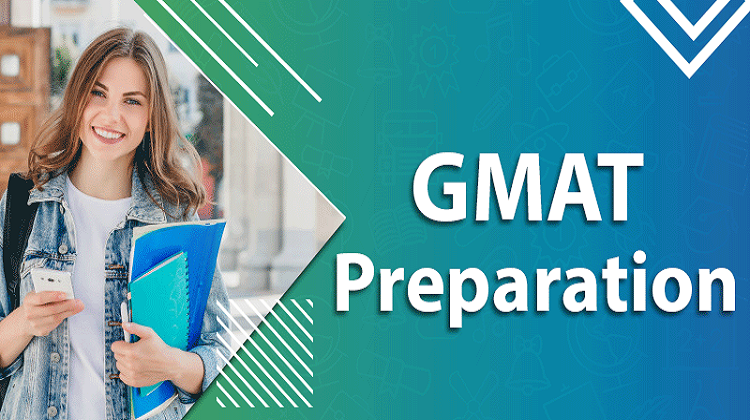To enter the business school of your choice, you must pass the Graduate Management Admission Test, or GMAT for short. In addition to verbal and reading capabilities, this computer-adaptive test evaluates your analytical, writing, and quantitative ability. For your future job, getting a high GMAT score can be transformative, but the GMAT prep process can be challenging.
There are numerous things to think about when studying for the GMAT, from comprehending the exam structure and making a study timetable to learning test-taking techniques and employing the appropriate resources. In this blog post, we’ll provide you with some tried-and-true advice for acing the GMAT and moving one step closer to your goal of enrolling in business school.
About GMAT Test
The Graduate Management Admission Test, sometimes known as the GMAT, is a standardized exam that business schools use as a part of the admissions procedure. Your proficiency in areas like analytical writing, integrated reasoning, mathematical reasoning, and verbal reasoning will all be evaluated on the test.
Verbal Reasoning, Integrated Reasoning, Quantitative Reasoning, and Analytical Writing Assessment are the four main components of the GMAT. You must evaluate an argument and produce a response for the Analytical Writing Assessment exam, whereas the Integrated Reasoning section evaluates your capacity to evaluate and synthesize facts from many sources.
The Verbal Reasoning component assesses your capacity to read and comprehend written information as well as your capacity to formulate arguments and critiques. The Quantitative Reasoning section gauges your capacity to solve mathematical problems. The GMAT is a computer-adaptive test, so it’s vital to remember that the difficulty of the questions you get will depend on how you answer prior ones.
Top Successful GMAT Preparation Tips
-
Creating A Study Plan For GMAT Preparation
Making a study plan is an essential first step to success in GMAT prep. It entails setting objectives, making a timetable, and following it. Everyone has a distinct study style and speed, so your study schedule should be customized to fit your needs. Assessing your present level of knowledge and determining your strengths and shortcomings should be your first steps. One of the best places to begin is with the official GMAT course and study materials, which were created by the Graduate Management Admission Council (GMAC).
This will assist you in identifying the areas that demand more emphasis and attention. Set measurable objectives, such as mastering a certain number of concepts or finishing a practice test in a specific amount of time. Make a schedule that includes specific study time each day or week after that. Plan following your other obligations, such as those at work or school.
-
Finding And Using The Right Study Materials
When preparing for the GMAT exam, it is essential to find and use the appropriate study materials and GMAT course. Determining which resources are worth your time and money can be difficult given the abundance of options.
The GMAT Official Guide, which is updated annually and contains hundreds of actual GMAT questions, is one of these resources. Another is the GMATPrep software, which offers two free practice examinations that perfectly replicate the actual test-taking experience. Additionally, a lot of independent businesses, like Kaplan, Princeton Review, and Manhattan Prep, sell GMAT study guides.
-
Reviewing Core Concepts And Knowledge Areas
A solid understanding of the fundamental ideas and subject areas assessed on the GMAT is essential for success on the test. Mathematics, algebra, geometry, and data analysis are some of these ideas. Before going on to more complicated issues, it is crucial to go over these ideas in detail and make sure you grasp them completely. In addition to studying fundamental ideas, it’s crucial to concentrate on knowledge areas that are unique to the GMAT test. These include sentence correction, reading comprehension, and critical reasoning.
-
Practicing With GMAT Practice Tests
To succeed on the GMAT exam, you must practice with GMAT practice tests. GMAT practice exams give you a taste of what to expect on test day, assisting you in psyching yourself up for the exam. The tests replicate the format, organization, and timing of the real GMAT exam, allowing you to become accustomed to the kinds of questions and pace needed to finish the test in the permitted time. You can pinpoint your strengths and shortcomings by taking GMAT practice exams, allowing you to concentrate your study efforts on the areas that need the most improvement.
-
Improving Time Management Skills
Successful GMAT preparation requires effective time management. The GMAT exam is timed, so you must be skilled at time management to finish all of the questions within the allotted time. You should begin by creating and adhering to a study timetable if you want to enhance your time management abilities. This will enable you to plan your time wisely and guarantee that you cover all pertinent material before the exam. Regular practice of timed mock exams is also advised. This will enable you to adapt to time constraints and develop techniques for providing concise and effective answers to queries.
-
Strengthening Reading Comprehension And Analytical Skills
For the GMAT, it’s essential to improve your analytical and reading comprehension abilities. The exam is meant to evaluate your comprehension of challenging literature as well as your analytical and critical thinking abilities. Start reading difficult literature outside of your comfort zone to develop your comprehension reading skills. Break down difficult arguments into their parts to hone your analytical abilities. This can be achieved by pointing out the presumptions made, the supporting data, and the conclusions reached.
Wrapping Off
The GMAT is a significant test that many people may find stressful. But with the advice we’ve given, we think you can successfully study for the test and get a score that accurately represents your abilities. You’ll be on your way to ace the GMAT if you keep your goals in mind, remain motivated, and put in a lot of effort. Wishing you luck on your travels and please let us know how we can assist you later.

